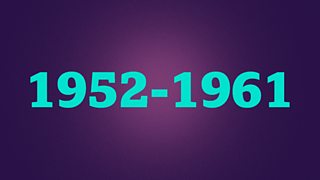The Big Jubilee Read - 2002-2011
17 April 2022
Throughout this year of Platinum Jubilee celebrations, the Βι¶ΉΤΌΕΔ and The Reading Agency are celebrating 70 great books from across the Commonwealth. Read on to discover more about The Big Jubilee Read selections drawn from 2002 to 2011.
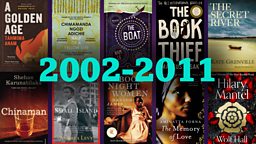
A celebration of literature from around the Commonwealth
A commoner causes turmoil in the court of King Henry VIII, a London waterman is transported to New South Wales, and a Pakistani woman tries to create a day to remember in these books published between 2002 and 2011.
The Reading Agency
-
![]()
The Big Jubilee Read is a partnership between the Βι¶ΉΤΌΕΔ and the Reading Agency.

Small Island
by Andrea Levy (2004, England)
It is 1948 and England is recovering from a war, but at 21 Nevern Street, London, the conflict has only just begun. Queenie Bligh’s neighbours do not approve when she agrees to take in Jamaican lodgers, but Queenie doesn’t know when her husband will return, or if he will come back at all.
Gilbert Joseph is one of the several thousand Jamaican men who joined the RAF to fight against Hitler. Returning to England as a civilian he finds himself treated with disdain. In desperation he remembers a wartime friendship with Queenie and knocks on her door.
Levy’s novel, written as part of an effort to understand her own family’s history, has become a classic story of immigrant experience in Britain in the years following World War Two.
- World Book Club - Andrea Levy discusses her prize-winning novel Small Island (Βι¶ΉΤΌΕΔ World Service)


The Secret River
by Kate Grenville (2005, Australia)
In London in 1806, William Thornhill is happily wedded to his childhood sweetheart Sal and is making a living as a waterman on the River Thames. Life is tough but bearable until he makes a mistake for which he and his family are made to pay dearly. He is sentenced to be transported to New South Wales for the term of his natural life. Soon Thornhill, a man no better or worse than most, has to make the most difficult decision of his life.
Grenville draws on her own family’s past to tell a complex story of colonialism and hard choices at the dawn of the nineteenth century.
- Bookclub - Harriett Gilbert talks to Kate Grenville about The Secret River (Βι¶ΉΤΌΕΔ Radio 4)


The Book Thief
by Markus Zusak (2005, Australia)
In Nazi Germany in the late 1930s, 'Death' has never been busier and the country is holding its breath. Liesel is living with a foster family on Himmel Street, Molching. Her parents have been taken away to a concentration camp. In an effort to cope, she begins to steal books.
Zusak’s novel is the story of a young girl and the inhabitants of her street when the bombs begin to fall.
- The Graham Norton Podcast - Graham speaks to Markus Zusak, author of The Book Thief, about his new novel

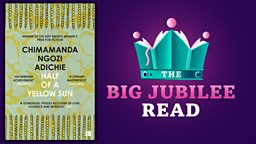
Half of a Yellow Sun
by Chimamanda Ngozi Adichie (2006, Nigeria)
In 1960s Nigeria, Ugwu, a boy from a poor village, goes to work for Odenigbo, a radical university professor. Soon they are joined by Olanna, a young woman who has abandoned a life of privilege to live with her charismatic lover. Into their world comes Richard, an English writer, who has fallen for Olanna’s sharp-tongued sister Kainene.
When the shocking horror of civil war engulfs the nation, their loves and loyalties are severely tested, while their lives pull apart and collide once again in ways none of them could have imagined.
- In Conversation: Chimamanda Ngozi Adichie (Βι¶ΉΤΌΕΔ News Channel)


A Golden Age
by Tahmina Anam (2007, Bangladesh)
In East Pakistan in the early 1970s. Rehana Haque is throwing a party for her beloved children, Sohail and Maya. Her young family is growing up fast, and Rehana wants to remember this day forever. But out on the hot city streets, something violent is brewing.
Anam explores what happens to individuals as a civil war develops; a struggle which will eventually see the birth of Bangladesh. Amid the conflict Rehana struggles to keep her children safe and finds herself facing a heart-breaking dilemma.
- Talking Books - George Alagiah speaks to Tahmima Anam about A Golden Age and her follow-up novel, The Good Muslim (Βι¶ΉΤΌΕΔ World Service)

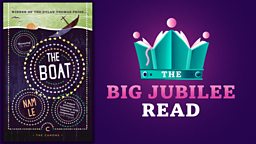
The Boat
by Nam Le (2008, Australia)
In this dazzling collection of short stories, Nam Le takes us across the globe as he enters the hearts and minds of characters from all over the world. Whether it’s the story of fourteen-year-old Juan, a hit man in Colombia; an ageing painter in New York mourning the death of his much-younger lover; or a young refugee fleeing Vietnam, crammed in the ship’s hold with two hundred others, the result is unexpectedly moving and powerful.
These extraordinary works of fiction take us to the heart of what it means to be human.


Wolf Hall
by Hilary Mantel (2009, England)
King Henry VIII is on the throne, but has no heir. Cardinal Wolsey is his chief advisor, charged with securing the divorce the pope refuses to grant. Into this atmosphere of distrust and need comes Thomas Cromwell, the son of a brutal blacksmith, a political genius, briber, charmer, bully, and man with a delicate and deadly expertise in manipulating people. Ruthless in pursuit of his own interests, he is as ambitious in his wider politics as he is for himself.
From one of our finest living writers, Wolf Hall is that very rare thing: a truly great English novel that explores the intersection of individual psychology and wider politics. With a vast array of characters, and richly overflowing with incident, it peels back history to show us Tudor England as a half-made society, moulding itself with great passion and suffering and courage.
- Watch all episodes of Wolf Hall on iPlayer - Mark Rylance stars in the Βι¶ΉΤΌΕΔ's production of Mantel's Booker Prize-winning novel


The Book of Night Women
Marlon James (2009, Jamaica)
By the Booker Prize-winning author Marlon James, The Book of Night Women is the powerful story of Lilith, born into slavery on a Jamaican sugar plantation at the end of the eighteenth century. Even at her birth, the Night Women - a clandestine council of fierce slaves plotting an island-wide revolt - recognize a dark force in her that they treat with both reverence and fear. But as Lilith comes of age and begins to understand her own feelings and identity, she dares to push at the edges of what is imaginable for the life of a slave woman.
And as rebellions simmer and unspoken jealousies intensify, Lilith's powers and sense of purpose threaten not just her own destiny, but the destinies of all the slave women in Jamaica.
- Open Book - A life in books with Marlon James (Βι¶ΉΤΌΕΔ Radio 4)


Chinaman
by Shehan Karunatilaka (2010, Sri Lanka)
Pradeep S. Mathew - spin bowler extraordinaire and 'the greatest cricketer to walk the earth' – is missing. Retired sportswriter W. G. Karunasena is dying, and he wants to know where he is. W.G. will spend his final months drinking arrack, making his wife unhappy, ignoring his son and tracking down the mysterious Pradeep. On his quest he will also uncover a coach with six fingers, a secret bunker below a famous stadium, a Tamil Tiger warlord, and startling truths about Sri Lanka, cricket and himself.
As the narrator explains, “If you can't understand why anyone would watch, let alone obsess over this dull game, then this is the book for you.”

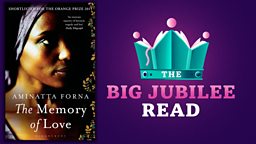
The Memory of Love
by Aminatta Forna (2010, Sierra Leone/Scotland)
On a hot January evening in Freetown, Sierra Leone, in 1969, Elias Cole first catches sight of Saffia Kamara, the wife of a charismatic colleague. He is transfixed. Thirty years later, lying in the capital's hospital, he recalls the desire that drove him to acts of betrayal he has tried to justify ever since.
Elsewhere in the hospital, Kai, a gifted young surgeon, is desperately trying to forget the pain of a lost love that torments him as much as the mental scars he still bears from the civil war that has left an entire people with terrible secrets to keep. It falls to a British psychologist, Adrian Lockheart, to help the two survivors, but when he too falls in love, past and present collide with devastating consequences. The Memory of Love is a heartbreaking story of ordinary people in extraordinary circumstances.
- Bookclub - Aminatta Forna discusses The Memory of Love (Βι¶ΉΤΌΕΔ Radio 4)

More from The Big Jubilee Read
-
![]()
1951-1961
An ex-RAF pilot confronts racism in the classroom, a young girl is caught up in the partition of India, and an alcoholic goes in search of his dead palm-wine tapster.
-
![]()
1962-1971
A Nigerian priest believes he has been chosen by his god, an Englishman and a South African join forces to modernise their community and a group of Australian schoolgirls vanish without trace.
-
![]()
1972-1981
An Indian family move from the countryside to the bustling city of Lahore, a retired spy is recruited to hunt down a mole in the British Secret Service and the Earth is demolished to make way for a hyperspace bypass.
-
![]()
1992-1991
A woman is forced to serve as a Handmaid in a dystopian future society, a German industrialist saves hundreds of Jews from death in Auschwitz and a Maori artist meets a mute six-year-old with a haunting past.
-
![]()
1992-2001
Two Second World War veterans try and rebuild a life in London, two twins grow up among political turmoil in Kerala and a young boy is stranded at sea with a ferocious Bengal tiger.
-
![]()
2012-2021
A South African family gather for their mother's funeral, a young boy in Singapore sets out to discover what happened to his grandmother during the Japanese invasion and a ghost story unfolds on the goldfields of New Zealand.

Discover more about brilliant books across the Βι¶ΉΤΌΕΔ
-
![]()
Between the Covers
Sara Cox hosts the irreverent, entertaining TV show where books spark the banter
-
![]()
Turn Up For The Books
Surprising and friendly book recommendations from Dan Smith, Irenosen Okojie and Simon Savidge in this Βι¶ΉΤΌΕΔ Sounds podcast
-
![]()
Classic novels
Listen in full to a selection of classic novels on Βι¶ΉΤΌΕΔ Sounds, including Frankenstein, Animal Farm and Jane Eyre
-
![]()
Open Book
The Radio 4 programme looking at new fiction and non-fiction books, talking to authors and publishers and unearthing lost classics

